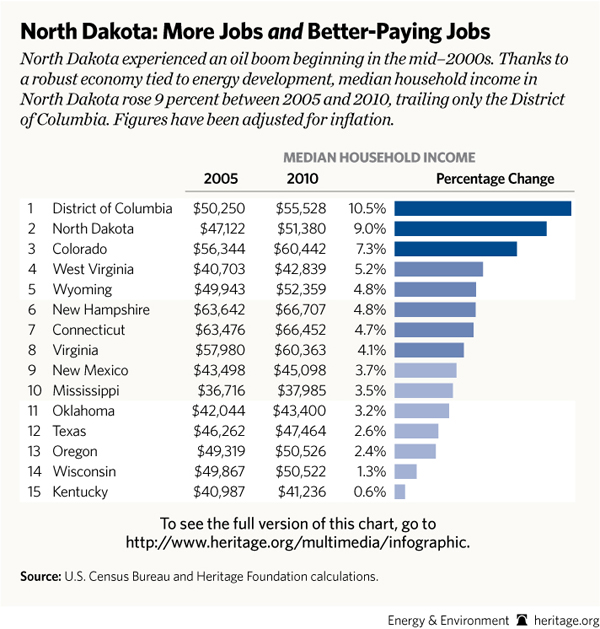North Dakota isn’t your typical destination for members of Congress on a July weekend. But that’s where you’ll find members of the House Oversight and Government Reform Committee on Saturday. They’re gathering for a hearing on job creation.
No state has done a better job of creating jobs than North Dakota. It has the nation’s lowest unemployment rate at 3 percent and leads all states with the fastest-growing household income in America over the past few years.
It’s no secret what’s happening in North Dakota. The economic success is the result of an oil boom in the Bakken Shale Formation. It has helped North Dakota surpass both California and Alaska to become the second-biggest oil-producing state.
Members of Congress spent Friday in Oklahoma reviewing burdensome and unnecessary regulations on energy production. They’re heading to North Dakota in hopes of finding a blueprint for America’s energy future. It’s a good place to explore.
The state’s success is attributable to sensible regulations, the often-maligned fracking process and drilling that’s taking place on private lands. The Heritage Foundation and Institute for Energy Research recently visited North Dakota to produce a short video that highlights how the oil boom has changed the lives of local residents and others who have flocked to the state for work.
Susan Gordon moved from California with her daughter to open the WildcatZ Grill in Tioga, ND. “We saw the opportunity for both of us to come here and make something of it,” she said. “Back in California the opportunity wouldn’t have been such.”
North Dakota was one of only 14 states (and the District of Columbia) to experience a rise in household income between 2005 and 2010, according to the most recent Census data. The overall U.S. average during that time declined 4.4 percent.
Energy production is working in other states as well. Colorado, West Virginia and Wyoming rounded out the top five. See chart below and complete ranking of all 50 states.

North Dakota’s success is why lawmakers are meeting at North Dakota State University in Fargo to hear directly from job creators. Witnesses include a handful of energy executives.
It’s also an opportunity to remind Americans that President Obama rejected the Keystone XL pipeline, which could have benefited North Dakota. According to the committee, Bakken oil is transported on rail and by truck, which are more expensive and less safe than a pipeline.
Rob Bluey directs the Center for Media and Public Policy, an investigative journalism operation at The Heritage Foundation. Follow him on Twitter: @RobertBluey








Join the conversation as a VIP Member